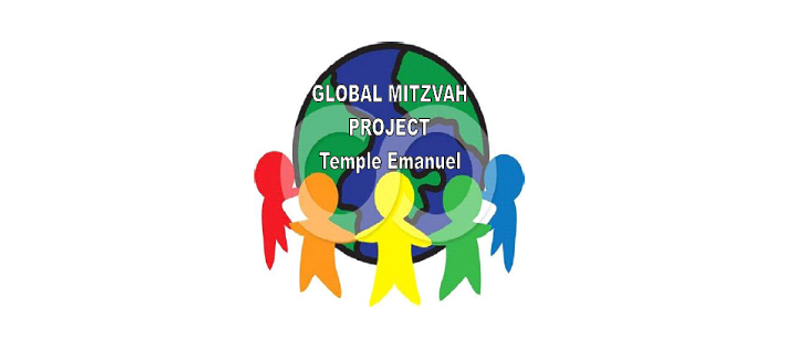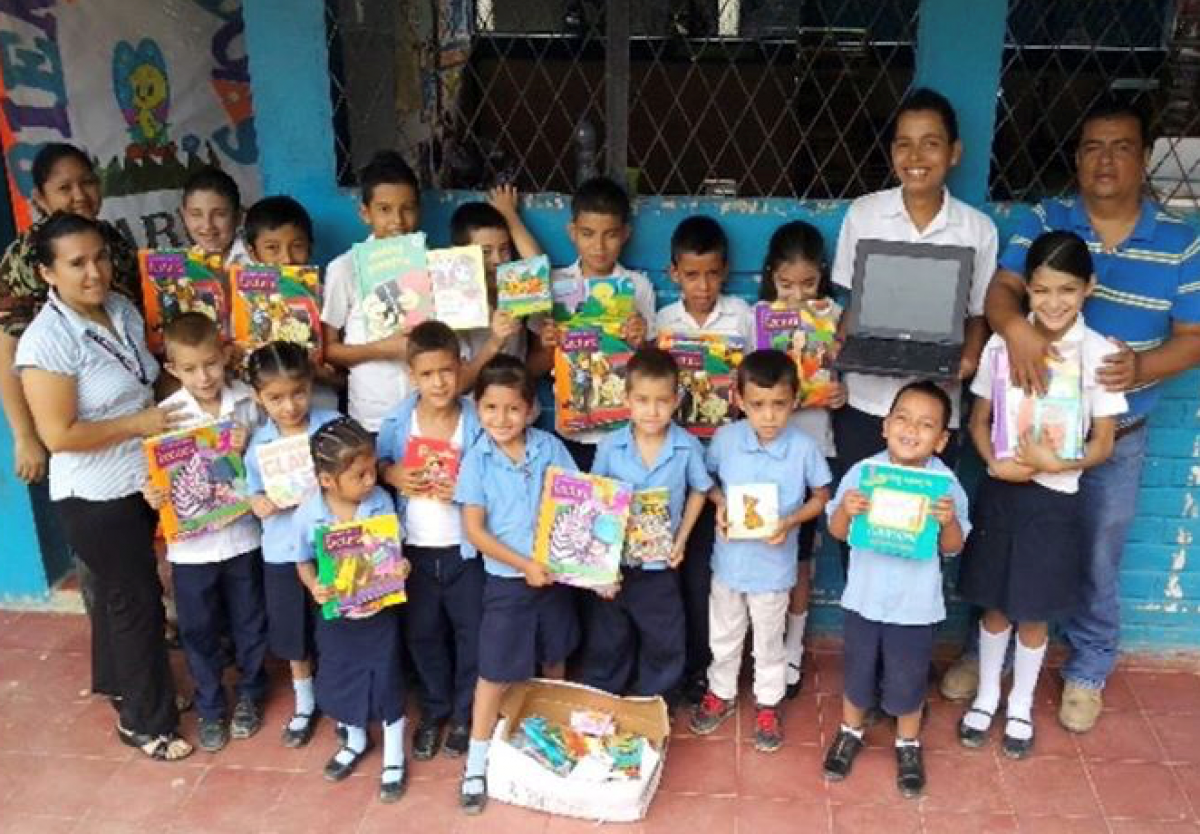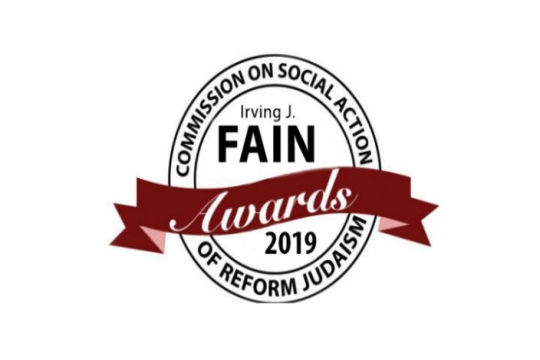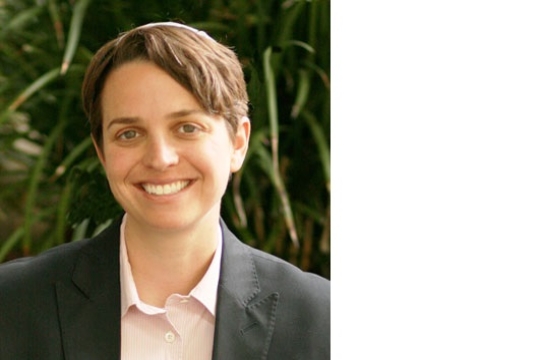
At Temple Emanuel (TE) in Metropolitan Washington, D.C., we are dreamers of peace and justice. An ancient Jewish Mishnah teaches us, “Whoever saves a single life is like saving worlds." The verse from the prophet Amos reminds us, “Let justice well up as waters and righteousness as a mighty stream.” These verses adorn our sanctuary ark, and they reflect our Temple’s deep commitment to uplifting lives with acts of justice that seek pragmatic on-the-grounds results in needy communities around the world.
Imagine throwing a small pebble of justice into the still lake of the world. The Global Mitzvah Project (GMP) at Temple Emanuel has been casting the stones of justice throughout the world, working to alleviate dire poverty and its devastating effects. This year our Global Mitzvah Team (GMT) celebrated ten years of innovative and effective Jewish activism.
The GMP has two main objectives:
(1) Enhance the congregation’s commitment, education and actions for tikkun olam;
(2) Provide tangible help to poor and at risk families and communities in developing regions of the world. To date, 26 different projects have been supported in 16 countries. The total amount of funds donated to these projects has exceeded $40,000 thanks to the support of our congregation and friends. Funding for a typical project has ranged from $500 - $2,500, with an average of $1,500. Funds raised from annual concert, car wash, dinners, sale of village handcrafts, and donations have varied from $2,500 in the first year to more than $8,000 recently. The lasting benefits of many of these projects are described in our new booklet, “Tikkun Olam In Action: Celebrating 10 Years of Temple Emanuel’s Successful Global Mitzvah Project.”
Here's a snapshot of how we've been able to make a difference:
Kolonyi Village, Uganda - GMP donated $2,000 to Innovation: Africa (IA), an NGO that brings Israeli solar, water, and agricultural technologies to countries in sub-Saharan Africa. Kolonyi Village has a population of 1,300 people who were dependent on contaminated, far off water, resulting in widespread sickness and disease. With GMP’s financial assistance, IA installed solar panels, a 10,000 liter water tank, an electric pump, and ten water stations throughout the village. Clean water was immediately accessible. The villagers were grateful for GMP’s help as their lives were uplifted in important ways, including healthier children, improved educational outcomes and graduation rates, and abundant water for irrigation, producing more nutritional food.
Los Granados Elementary School Library, El Salvador - GMP partnered with the Association for the Development of Education in El Salvador (ADEES) to help establish a school library and reading program at Los Granados Elementary in San Carlos, a poor and underserved rural district. The school served 60 children in pre-K through 5th grade. The community had an illiteracy rate of 25%, and the building lacked a library and materials. GMP donated $2,500 to ADEES to purchase furniture, equipment, and books for a new library. In addition, TE religious school students and families collected over 1,000 books, assorted puzzles, toys and games, a laptop computer, and $336 in cash. All students are now using the library and participate regularly in library lessons and new reading programs. The library now displays a plaque over the front door which reads: “Supported by the Global Mitzvah program of Temple Emanuel, Kensington, Maryland, United State of America."

The Global Mitzvah Project (GMP) carefully studies possibilities for new international projects to support. Although there are hundreds of potential projects aiming to reduce global poverty, the GMT considers several main criteria before deciding on a new project to fund:
- Consistent with Temple Emanuel's values and priorities
- Enhances congregation and student awareness, education and engagement
- Promotes sustainable, expanding, self-help outcomes
- Provides detailed, personal, regular feedback to share with the temple community
- Likely to have a demonstrated, evidence-based positive result
- Offers a working alliance with effective, reputable non-government or non-profit organizations
Our methods of community education have included regular articles in the Kol Kore temple newsletter; presentations, reports, announcements and information tables at community events; and class presentations for religious school students. Global Mitzvah Shabbat Services have featured inspiring guest speakers engaged in social action. The GMP has been recognized for its exceptional work by the Commission on Social Action of Reform Judaism, receiving an Irving J. Fain Social Action Award at the 2013 Religious Action Center Consultation on Conscience.
The Temple Emanuel congregation consists of 500 families. We estimate that a majority of the member families have participated in one or more of the various fundraising and community education programs conducted by the GMP. The project is led by co-chairs and conducted by a dedicated and creative group of 19 volunteers, including 4 students representing 6th and 7th grade religious school classes. The GMP does not have a line-item in the temple budget but is fully supported for costs of office supplies, administrative assistance, publicity, communication, and mailing. Financial support for all international projects derives from fundraising activities and unsolicited donations from temple members and friends.
There is little doubt that the Global Mitzvah project can be replicated by other synagogues, providing that it has visionary leadership by the Rabbi, board approval, full administrative support, and committed, open minded volunteers to form and work on the Global Mitzvah Team.
Stanley Fagen is a long-standing member of Temple Emanuel in Kensington, MD, serves as a member of its Board of Trustees and has been Co-Chair for the Global Mitzvah Project since its inception. Rabbi Warren Stone has served as rabbi of Temple Emanuel since 1988. He is known nationally for his leadership on religion and the environment, is the Co-Chair of the National Religion Coalition on Creation Care, and the founding chair of the Central Conference of American Rabbis’ Committee on the Environment.
Related Posts

Announcing the Recipients of the 2019 Irving J. Fain Social Justice Award
Tzedakah and Sadaqah: A Fain Award Perspective on Building an Interfaith Community of Justice

